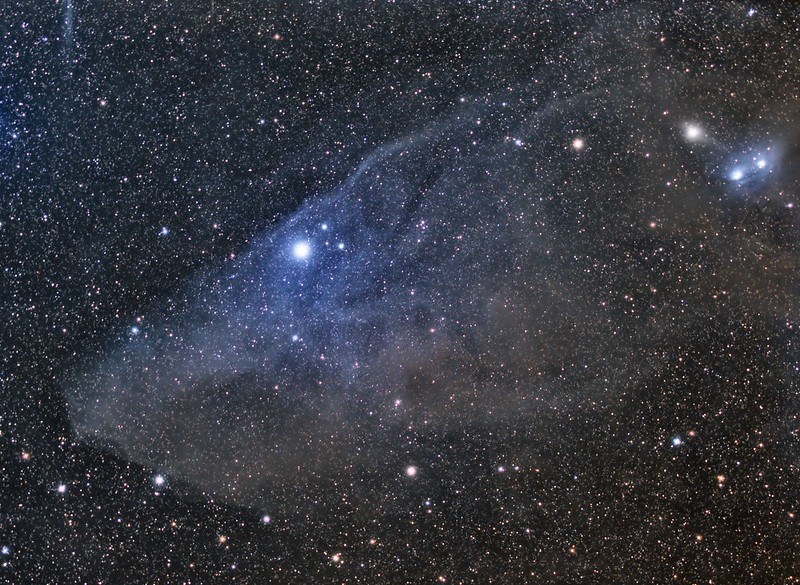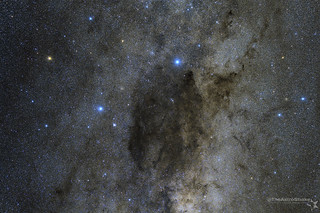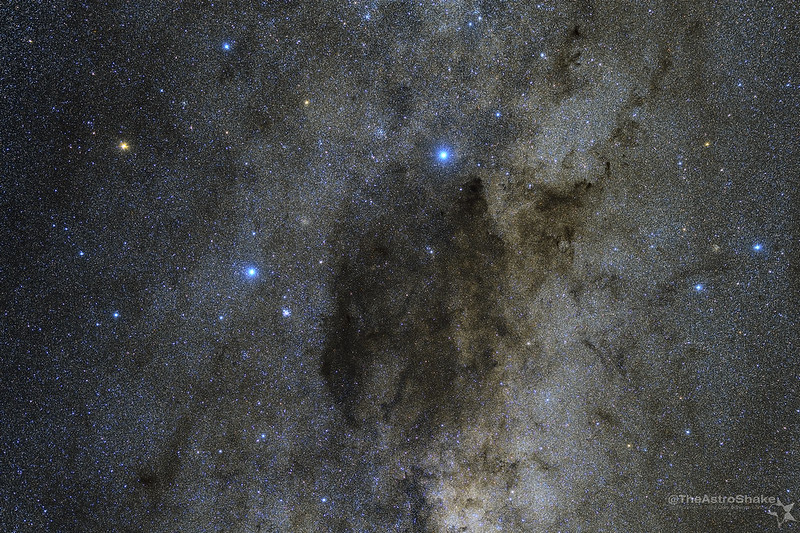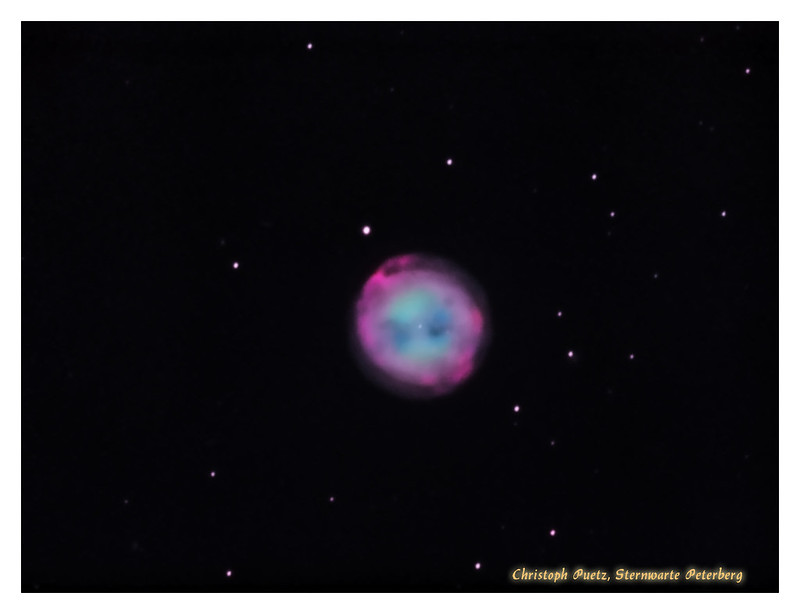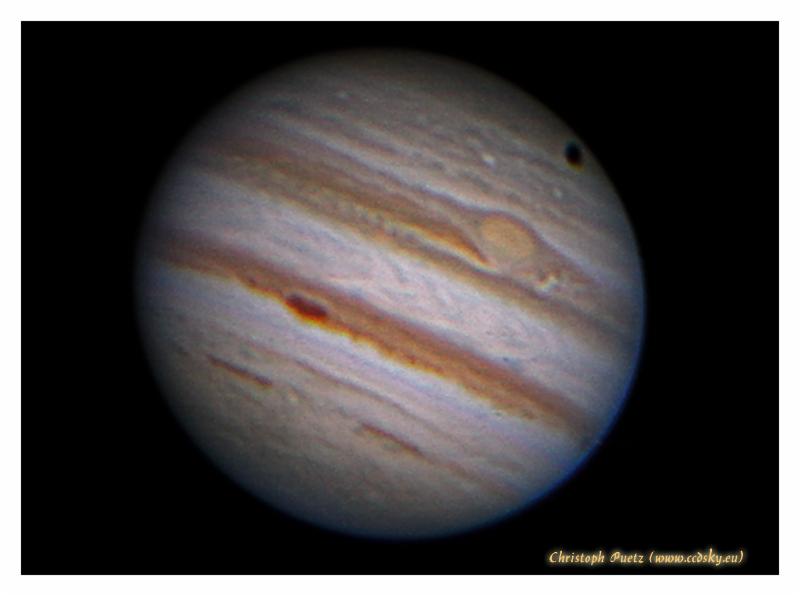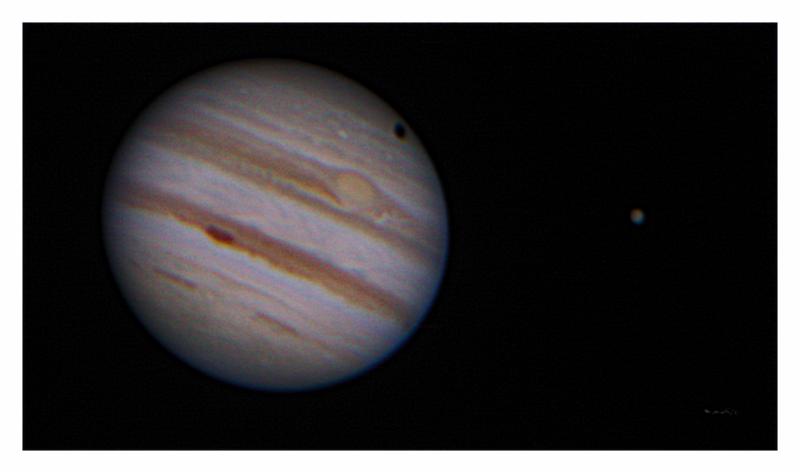Submissions: 2014 April
Re: Submissions: 2014 April
Eclipse total de Luna - Abril de 2014
Avellaneda - Argentina
Autor: Carlos Di Nallo
Avellaneda - Argentina
Autor: Carlos Di Nallo
Lunar Eclipse over Maryborough Railway Station
Lunar Eclipse over Maryborough Railway Station, a grand station for a small regional Victorian town built during the gold rush days. As Mark Twain dryly observed on his visit in 1895: "A railway station with a town attached".
http://en.wikipedia.org/wiki/Maryboroug ... ay_station
Canon 5D Mark II, 24-105mm lens @80mm. Clamped to a ladder.
http://philhart.com/content/lunar-eclip ... gh-station
Phil
http://en.wikipedia.org/wiki/Maryboroug ... ay_station
Canon 5D Mark II, 24-105mm lens @80mm. Clamped to a ladder.
http://philhart.com/content/lunar-eclip ... gh-station
Phil
Re: Submissions: 2014 April
From San Miguel, Buenos Aires, Argentina
1- Moon, Spica, Mars
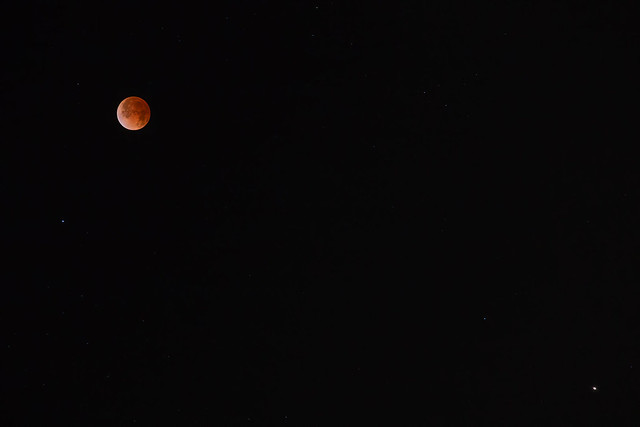
https://farm4.staticflickr.com/3667/138 ... 880c_o.jpg
2- Moon & Spica
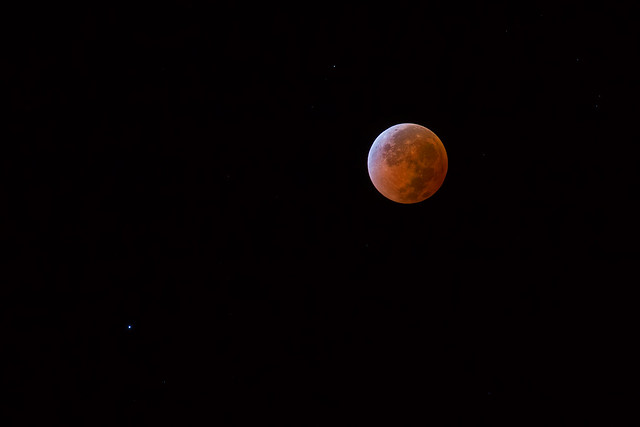
https://farm3.staticflickr.com/2824/138 ... c2fb_o.jpg
3- Eclipsed
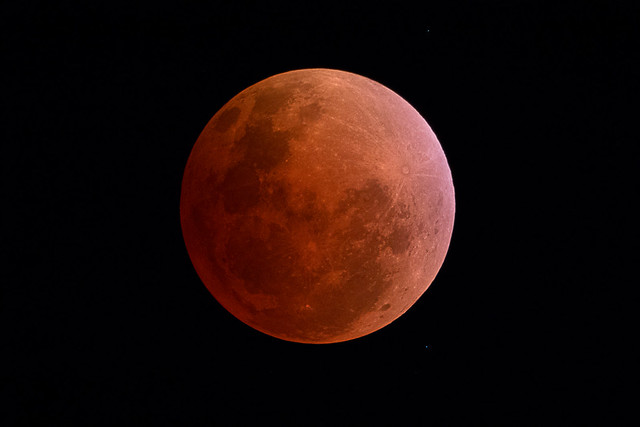
https://farm6.staticflickr.com/5544/138 ... 091c_o.jpg
4- Sequence
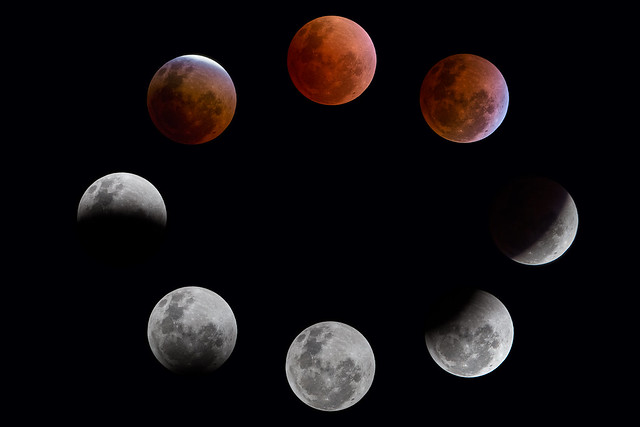
https://farm4.staticflickr.com/3764/138 ... ef17_o.jpg
1- Moon, Spica, Mars

https://farm4.staticflickr.com/3667/138 ... 880c_o.jpg
2- Moon & Spica

https://farm3.staticflickr.com/2824/138 ... c2fb_o.jpg
3- Eclipsed

https://farm6.staticflickr.com/5544/138 ... 091c_o.jpg
4- Sequence

https://farm4.staticflickr.com/3764/138 ... ef17_o.jpg
NGC 3718
Processed the cluster in Ursa Major tonight, only six hours data (3 Luminance and 1 hour R,G and B)
-
StefanoDeRosa
- Science Officer
- Posts: 114
- Joined: Mon Apr 12, 2010 8:37 am
Re: Submissions: 2014 April
Full Moon over the Basilica of Don Bosco
http://stefanoderosa.com/
Copyright: Stefano De Rosa Please find above two images and a sequence of the Full Moon rising behind the Basilica of Don Bosco, located few kilometers from Turin, the evening of April 15, 2014.
In the second picture the Moon appears flattened as rising alongside the Basilica.
Images taken come 2.7 km away from the Basilica.
Best regards
Stefano
http://stefanoderosa.com/
Copyright: Stefano De Rosa Please find above two images and a sequence of the Full Moon rising behind the Basilica of Don Bosco, located few kilometers from Turin, the evening of April 15, 2014.
In the second picture the Moon appears flattened as rising alongside the Basilica.
Images taken come 2.7 km away from the Basilica.
Best regards
Stefano
Last edited by StefanoDeRosa on Wed Apr 16, 2014 1:57 pm, edited 1 time in total.
-
aldomottino
- Ensign
- Posts: 75
- Joined: Fri Dec 23, 2011 11:08 pm
Lunar eclipse from the garden
Moon and Spica.
Copyright: Aldo Mottino (Rosario, Argentina)
Copyright: Aldo Mottino (Rosario, Argentina)
Last edited by aldomottino on Thu Apr 17, 2014 2:13 am, edited 2 times in total.
-
rankinstudio
- Asternaut
- Posts: 8
- Joined: Wed Oct 09, 2013 3:03 pm
Re: Submissions: 2014 April
Re: Submissions: 2014 April
sunspots 2032 to 2037
http://asterisk.apod.com/viewtopic.php? ... 97#p224097
Re: Submissions: 2014 April
A Study in Scarlet
Credit: ESO
An article: http://www.eso.org/public/news/eso1413/ Mars at Opposition and Full Moon
Copyrights: Ziad El-Zaatari TACC: Supercomputers Help Understand How Black Holes Swallow Stars
Credit: NASA; S. Gezari (The Johns Hopkins University); and J. Guillochon (University of California, Santa Cruz)
An article: https://www.tacc.utexas.edu/news/featur ... smic-slurp IR Mars on April 14th 2014
Copyrights: Leo Aerts NASA Cassini Images May Reveal Birth of a Saturn Moon
Credits: NASA/JPL-Caltech/Space Science Institute
An article: http://www.jpl.nasa.gov/news/news.php?release=2014-112 Mars April 14th 2014
Copyrights: Simon Kidd
Credit: ESO
An article: http://www.eso.org/public/news/eso1413/ Mars at Opposition and Full Moon
Copyrights: Ziad El-Zaatari TACC: Supercomputers Help Understand How Black Holes Swallow Stars
Credit: NASA; S. Gezari (The Johns Hopkins University); and J. Guillochon (University of California, Santa Cruz)
An article: https://www.tacc.utexas.edu/news/featur ... smic-slurp IR Mars on April 14th 2014
Copyrights: Leo Aerts NASA Cassini Images May Reveal Birth of a Saturn Moon
Credits: NASA/JPL-Caltech/Space Science Institute
An article: http://www.jpl.nasa.gov/news/news.php?release=2014-112 Mars April 14th 2014
Copyrights: Simon Kidd
Re: Submissions: 2014 April
IC 4603 - The Turbulent Heart of the Scorpion
http://www.rolfolsenastrophotography.com
Copyright: Rolf Wahl Olsen Link to large image (4 MB)
Here is the latest image from my 12.5" f/4 scope. Data was gathered from early March and into April.
Interestingly, while the whole Rho Ophiuchi region is one of the most photographed in the sky there hardly exists any high resolution images of this; its colourful action packed core area.
About the image:
This image shows the core region of the Rho Ophiuchi Complex, centered around the prominent blue reflection nebula IC 4603. This is one of the nearest star forming regions and the intricacies of the dense interstellar dust clouds in the area provide a spectacular display of light and shade; the contrasting hues making this one of the most dramatic and colourful patches of the entire night sky.
Even the brightest parts of this dusty nebulousity is barely noticeable when viewed through large amateur telescopes. This deep exposure brings out the full splendour of the scene and shows the delicately swirling clouds like an expressionist painting on a giant interstellar canvas.
The bright star is 7.9 magnitude SAO184376 which is the main source of light for the blue reflection nebula. The contrasting red areas are primarily illuminated by the red supergiant star Antares, which lies just outside the field of view.
Antares has been referred to as the heart of the scorpion since antiquity, and we now know that it is one of the largest stars in existence.
The dense nebulousity blocks the usual sprawling star fields that are normally seen near the galactic plane. Instead the area is littered with dim reddish stars, which are typically very young T Tauri stars. Such stars are among the youngest visible stars with masses comparable to our Sun. Because they have only recently condensed out of the surrounding molecular clouds their core temperatures are not yet high enough for hydrogen fusion. Instead they are powered by heat released from gravitational contraction, which lasts until the star reaches a density where the fusion process ignites. For these stars this initial stage of stellar evolution takes approximately 100 million years. The process is typically much faster for blue giant stars which evolve and burn their hydrogen at a furious pace before exploding as brilliant supernovae.
Image details:
Date: 6th, 7th, 10th, 27th, 28th, 31st March and 4th, 6th April 2014
Telescope: Homebuilt 12.5" f/4 Serrurier Truss Newtonian
Exposure: LRGB 755:80:75:75 mins, total 16hrs 25mins @ -25C
Camera: QSI 683wsg with Lodestar guider
Filters: Astrodon LRGB E-Series Gen 2
Taken from my observatory in Auckland, New Zealand
http://www.rolfolsenastrophotography.com
Copyright: Rolf Wahl Olsen Link to large image (4 MB)
Here is the latest image from my 12.5" f/4 scope. Data was gathered from early March and into April.
Interestingly, while the whole Rho Ophiuchi region is one of the most photographed in the sky there hardly exists any high resolution images of this; its colourful action packed core area.
About the image:
This image shows the core region of the Rho Ophiuchi Complex, centered around the prominent blue reflection nebula IC 4603. This is one of the nearest star forming regions and the intricacies of the dense interstellar dust clouds in the area provide a spectacular display of light and shade; the contrasting hues making this one of the most dramatic and colourful patches of the entire night sky.
Even the brightest parts of this dusty nebulousity is barely noticeable when viewed through large amateur telescopes. This deep exposure brings out the full splendour of the scene and shows the delicately swirling clouds like an expressionist painting on a giant interstellar canvas.
The bright star is 7.9 magnitude SAO184376 which is the main source of light for the blue reflection nebula. The contrasting red areas are primarily illuminated by the red supergiant star Antares, which lies just outside the field of view.
Antares has been referred to as the heart of the scorpion since antiquity, and we now know that it is one of the largest stars in existence.
The dense nebulousity blocks the usual sprawling star fields that are normally seen near the galactic plane. Instead the area is littered with dim reddish stars, which are typically very young T Tauri stars. Such stars are among the youngest visible stars with masses comparable to our Sun. Because they have only recently condensed out of the surrounding molecular clouds their core temperatures are not yet high enough for hydrogen fusion. Instead they are powered by heat released from gravitational contraction, which lasts until the star reaches a density where the fusion process ignites. For these stars this initial stage of stellar evolution takes approximately 100 million years. The process is typically much faster for blue giant stars which evolve and burn their hydrogen at a furious pace before exploding as brilliant supernovae.
Image details:
Date: 6th, 7th, 10th, 27th, 28th, 31st March and 4th, 6th April 2014
Telescope: Homebuilt 12.5" f/4 Serrurier Truss Newtonian
Exposure: LRGB 755:80:75:75 mins, total 16hrs 25mins @ -25C
Camera: QSI 683wsg with Lodestar guider
Filters: Astrodon LRGB E-Series Gen 2
Taken from my observatory in Auckland, New Zealand
Re: Submissions: 2014 April
IC4592 the Blue Horsehead Nebula
https://www.flickr.com/photos/astro_gvanhau/
Copyright: Geert Vanhauwaert
Here large version: https://www.flickr.com/photos/astro_gva ... 3/sizes/h/
https://www.flickr.com/photos/astro_gvanhau/
Copyright: Geert Vanhauwaert
Here large version: https://www.flickr.com/photos/astro_gva ... 3/sizes/h/
Last edited by owlice on Thu Apr 17, 2014 6:05 am, edited 1 time in total.
Reason: Replaced image with smaller file for faster display
Reason: Replaced image with smaller file for faster display
- goldpaintphoto
- Ensign
- Posts: 44
- Joined: Sun May 15, 2011 11:08 pm
- Location: Mount Shasta, CA
- Contact:
Re: Submissions: 2014 April
Zodiacal Light, the Milky Way, and myself at Balanced Rock
Copyright: Brad Goldpaint
http://goldpaintphotography.com/
Copyright: Brad Goldpaint
http://goldpaintphotography.com/
-
vanamonde81
- Science Officer
- Posts: 143
- Joined: Fri Apr 12, 2013 7:46 am
Re: Submissions: 2014 April
Lunar Analemma
Copyright: György Soponyai
This January my first Solar Analemma project was completed at the bank of river Danube in Budapest, Hungary:
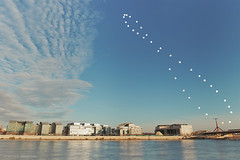
I decided to go on this project by trying to capture the Lunar Analemma curve standing at the same location. I expected photographing the Moon during a whole Lunar month would require at least one or two years due to the terrible astro climate of my country, however the previous month I enjoyed the biggest luck in my life with the clouds.
The Moon needs 27.3 days for completing a revolution around the Earth (sidereal month) and completing a lap in the Analemma curve. But the period of Lunar phases are two days longer: Full Moons occur every 29.5 days (synodic month). By inspecting this image the difference between sidereal- and synodic month is evident: in every point of the Analemma curve the Moon has different phases in different laps.

In the foreground an office building, the Hungarian National Theater, the Palace of Arts and the Eastern pillar of Rákóczi Bridge are visible. This part of the river is frequently used by sight-seeing vessels to turn back to North towards the city center. I chose this foreground photo as the wave of the turning ship slightly resembles the mirrored curve of the Analemma.
The Lunar photos (a wide field and a closeup) were taken between 2014-03-15 and 2014-04-15 in every 24 hours 50 minutes and 48 seconds.
Foreground:
2013-04-09 Canon EOS 5D Mark II + Carl Zeiss Distagon 28/F2.8
F5.6, 1sec, ISO 200
Lunar closeup photos:
Canon EOS 5D Mark II + Canon EF 200/F2.8 L
Copyright: György Soponyai
This January my first Solar Analemma project was completed at the bank of river Danube in Budapest, Hungary:

I decided to go on this project by trying to capture the Lunar Analemma curve standing at the same location. I expected photographing the Moon during a whole Lunar month would require at least one or two years due to the terrible astro climate of my country, however the previous month I enjoyed the biggest luck in my life with the clouds.
The Moon needs 27.3 days for completing a revolution around the Earth (sidereal month) and completing a lap in the Analemma curve. But the period of Lunar phases are two days longer: Full Moons occur every 29.5 days (synodic month). By inspecting this image the difference between sidereal- and synodic month is evident: in every point of the Analemma curve the Moon has different phases in different laps.

In the foreground an office building, the Hungarian National Theater, the Palace of Arts and the Eastern pillar of Rákóczi Bridge are visible. This part of the river is frequently used by sight-seeing vessels to turn back to North towards the city center. I chose this foreground photo as the wave of the turning ship slightly resembles the mirrored curve of the Analemma.
The Lunar photos (a wide field and a closeup) were taken between 2014-03-15 and 2014-04-15 in every 24 hours 50 minutes and 48 seconds.
Foreground:
2013-04-09 Canon EOS 5D Mark II + Carl Zeiss Distagon 28/F2.8
F5.6, 1sec, ISO 200
Lunar closeup photos:
Canon EOS 5D Mark II + Canon EF 200/F2.8 L
Re: Submissions: 2014 April
Kepler astronomers discover new rocky planet that may have liquid water
An article: http://news.sfsu.edu/kepler-astronomers ... quid-water
Credit: Danielle Futselaar (Artist's impression) Credit: NASA Ames/SETI Institute/JPL-CalT http://asterisk.apod.com/viewtopic.php?p=224141#p224141
A cross-section of the Universe
Credit: NASA, ESA
An article: http://www.spacetelescope.org/images/heic1408a/ IC2118
Copyrights: Jose F. Hdez Clouds in Montreal
Copyrights: Mark Mallahan South Rim of the Grand Canyon
Copyrights: Paul Brand Mars April 15th 2014
Copyrights: Simon Kidd Parhelion in Sarasota, Florida
Copyrights: Nikki Kostyun A Sharp Eye on Southern Binary Stars
Credits: Credit: M. A. Newhouse & NOAO/AURA/NSF
An article: http://www.noao.edu/news/2014/pr1403.php Conjunction
Copyrights: Mohamed Laaifat
An article: http://news.sfsu.edu/kepler-astronomers ... quid-water
Credit: Danielle Futselaar (Artist's impression) Credit: NASA Ames/SETI Institute/JPL-CalT http://asterisk.apod.com/viewtopic.php?p=224141#p224141
A cross-section of the Universe
Credit: NASA, ESA
An article: http://www.spacetelescope.org/images/heic1408a/ IC2118
Copyrights: Jose F. Hdez Clouds in Montreal
Copyrights: Mark Mallahan South Rim of the Grand Canyon
Copyrights: Paul Brand Mars April 15th 2014
Copyrights: Simon Kidd Parhelion in Sarasota, Florida
Copyrights: Nikki Kostyun A Sharp Eye on Southern Binary Stars
Credits: Credit: M. A. Newhouse & NOAO/AURA/NSF
An article: http://www.noao.edu/news/2014/pr1403.php Conjunction
Copyrights: Mohamed Laaifat
Re: Submissions: 2014 April
sol y aves, y III, sunspots 2032 to 2038
http://asterisk.apod.com/viewtopic.php? ... 46#p224146
-
Astromontufar
- Science Officer
- Posts: 234
- Joined: Sun Dec 23, 2012 3:07 am
- Location: Guatemala
- Contact:
Re: Submissions: 2014 April
https://www.flickr.com/photos/m_acubens/13916678803/
https://www.flickr.com/photos/m_acubens/13887153064
https://www.flickr.com/photos/m_acubens/13887153064
By Sergio Montúfar
https://www.flickr.com/photos/m_acubens/13887153064
https://www.flickr.com/photos/m_acubens/13887153064
By Sergio Montúfar
Sergio Emilio Montúfar Codoñer
pinceladasnocturnas.com
pinceladasnocturnas.com
-
Efrain Morales
- Commander
- Posts: 508
- Joined: Fri Oct 22, 2010 8:15 pm
- AKA: Jaicoa
- Location: Aguadilla, Puerto Rico
- Contact:
Saturn and the moons Tethys and Enceladus on April 15th, 05:
Saturn and the moons Tethys and Enceladus on April 15th, 05:12ut. The moons are located top left of image.
-
TheAstroShake
The Southern Cross and Coalsack Nebula
Large version on Flickr: https://www.flickr.com/photos/schmitzcory/13913808673/
The Coalsack dark nebula in Crux is an apparently massive and dense complex of dust and gas visible only in the Southern Hemisphere. It's a mind-blowing sight to see in dark skies, and appears as a gaping hole in the Milky Way, bordered closely by the beautiful constellation of Crux, or the Southern Cross.
Captured on a recent astrophotography trip 2014-03-30 in the Karoo Desert of South Africa, near the small town of Sutherland.
Image details:
14x5min ISO800
Canon 5D Mark II, unmodified
Canon 70-200mm f/2.8 lens (at f/3.2 135mm)
Celestron CG5-ASGT, unguided
Calibrated with dark, flat, and bias frames
Software:
Data acquired with BackyardEOS
Calibrated, aligned, and integrated with PIxInsight
Post-processed with PixInsight and Lightroom
The Coalsack dark nebula in Crux is an apparently massive and dense complex of dust and gas visible only in the Southern Hemisphere. It's a mind-blowing sight to see in dark skies, and appears as a gaping hole in the Milky Way, bordered closely by the beautiful constellation of Crux, or the Southern Cross.
Captured on a recent astrophotography trip 2014-03-30 in the Karoo Desert of South Africa, near the small town of Sutherland.
Image details:
14x5min ISO800
Canon 5D Mark II, unmodified
Canon 70-200mm f/2.8 lens (at f/3.2 135mm)
Celestron CG5-ASGT, unguided
Calibrated with dark, flat, and bias frames
Software:
Data acquired with BackyardEOS
Calibrated, aligned, and integrated with PIxInsight
Post-processed with PixInsight and Lightroom
-
TheAstroShake
Southern Cross and the Coalsack nebula
Large version on Flickr: https://www.flickr.com/photos/schmitzcory/13913808673/
The Coalsack dark nebula in Crux is an apparently massive and dense complex of dust and gas visible only in the Southern Hemisphere. It's a mind-blowing sight to see in dark skies, and appears as a gaping hole in the Milky Way, bordered closely by the beautiful constellation of Crux, or the Southern Cross.
Captured on a recent astrophotography trip 2014-03-30 in the Karoo Desert of South Africa, near the small town of Sutherland.
Image details:
14x5min ISO800
Canon 5D Mark II, unmodified
Canon 70-200mm f/2.8 lens (at f/3.2 135mm)
Celestron CG5-ASGT, unguided
Calibrated with dark, flat, and bias frames
Software:
Data acquired with BackyardEOS
Calibrated, aligned, and integrated with PIxInsight
Post-processed with PixInsight and Lightroom
The Coalsack dark nebula in Crux is an apparently massive and dense complex of dust and gas visible only in the Southern Hemisphere. It's a mind-blowing sight to see in dark skies, and appears as a gaping hole in the Milky Way, bordered closely by the beautiful constellation of Crux, or the Southern Cross.
Captured on a recent astrophotography trip 2014-03-30 in the Karoo Desert of South Africa, near the small town of Sutherland.
Image details:
14x5min ISO800
Canon 5D Mark II, unmodified
Canon 70-200mm f/2.8 lens (at f/3.2 135mm)
Celestron CG5-ASGT, unguided
Calibrated with dark, flat, and bias frames
Software:
Data acquired with BackyardEOS
Calibrated, aligned, and integrated with PIxInsight
Post-processed with PixInsight and Lightroom
-
Thierry Legault
- Ensign
- Posts: 85
- Joined: Wed May 26, 2010 4:45 pm
Re: Submissions: 2014 April
Fantastic passage of the SpaceX Dragon over Paris 25 minutes after launch! Four bright points moving together while crossing the Big Dipper:

Full HD video:


Full HD video:
Click to play embedded YouTube video.
-
Andromeda 2013
- Science Officer
- Posts: 196
- Joined: Tue Jul 09, 2013 2:11 pm
- Contact:
Re: Submissions: 2014 April
April 17 2014 Sunspots
Canon 450d Full Spectrum DanoMod
Prime on Dobson 12” GGEM-DX
Video 22 fps stacked in Registax
http://www.flickr.com/photos/92681330@N06/
Copyright: Daniel Pasternak
Canon 450d Full Spectrum DanoMod
Prime on Dobson 12” GGEM-DX
Video 22 fps stacked in Registax
http://www.flickr.com/photos/92681330@N06/
Copyright: Daniel Pasternak
-
Christoph Puetz
- Ensign
- Posts: 35
- Joined: Tue May 03, 2011 4:24 pm
-
Christoph Puetz
- Ensign
- Posts: 35
- Joined: Tue May 03, 2011 4:24 pm
Re: Submissions: 2014 April
Jupiter with Ganymede's Shadow (from 2011)
http://www.ccdsky.eu
Copyright: Christoph Puetz
Location: Peterberg Observatory (http://www.sternwarte-peterberg.de)
http://www.ccdsky.eu
Copyright: Christoph Puetz
Location: Peterberg Observatory (http://www.sternwarte-peterberg.de)
-
Christoph Puetz
- Ensign
- Posts: 35
- Joined: Tue May 03, 2011 4:24 pm







